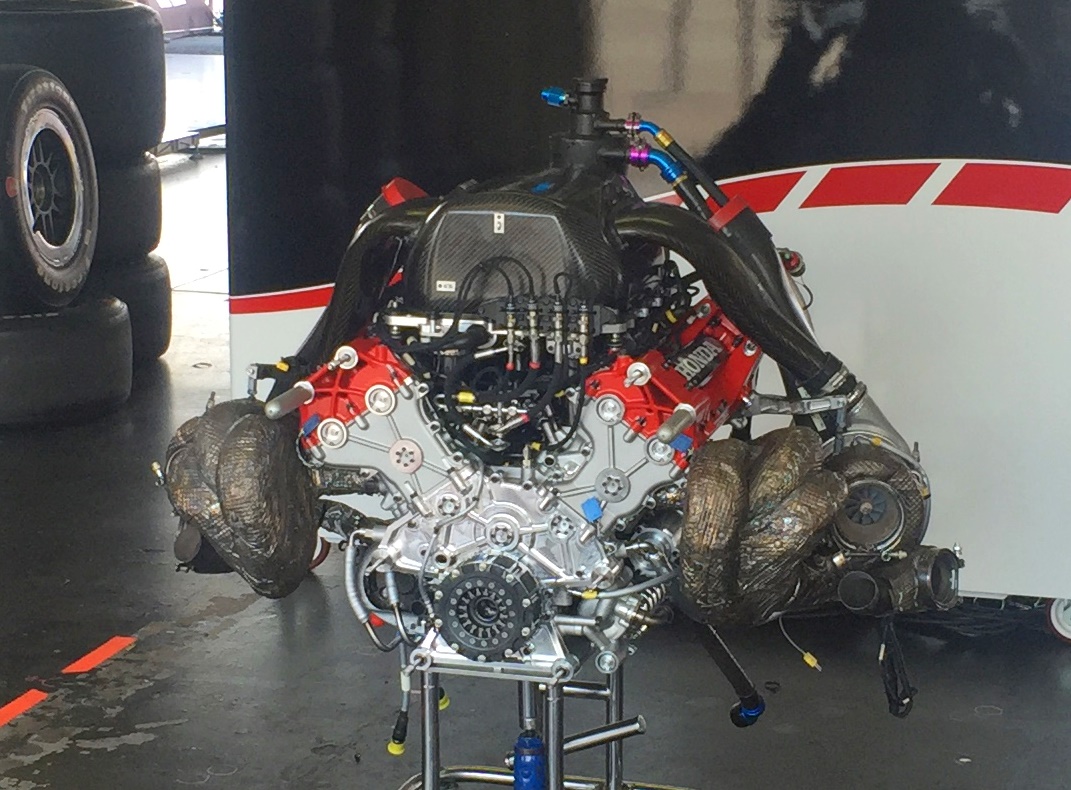IndyCar looking for major power boost from next engine
 |
| Current Honda IndyCar engine. If IndyCar would come out with a screaming engine like F1 used to be, fans will flock back to the sport. But electric cars are the future, so IndyCar is beholden to the manufacturers. |
IndyCar's president of competition and operations Jay Frye says a new engine formula with a significant power increase could be introduced as soon as 2020 writes David Malsher of Autosport.
The current 2.2-liter turbocharged engine, which produces from 550-700bhp depending on the boost used at each track, has been in place since the start of the 2012 season, when IndyCar also switched to the DW12 chassis.
IndyCar's new 2018 car includes a return to a spec aero package after three years of manufacturer aerokits, and it will continue with this car for at least three years.
It could be married to a significant engine upgrade as soon as 2020.
Frye told Autosport: "Making more power is our next step and just as we reverse-engineered the car, starting with its aesthetics first, then it's the same for the engine.
"We've got great OEM partners in Honda and Chevrolet and we've asked them, 'What have we got to do to get 100 to 150 more horsepower?'
"Then they come back with their list, we see what's common to both, and then figure out if that gets us where we need to be.
"We've undertaken that process already because we always work at least three years out.
"So if we extend this car for one more year to run in 2021, we could still introduce an engine upgrade in 2020.
"I'm not saying it's decided, but these are the things that are being discussed – what can happen when."
Frye said that even if it's decided that the new Indycar won't be introduced until 2022, the series will "probably" start work on it this year.
He is hoping that by then there will be a clearer picture of other manufacturers joining as engine suppliers.
"By the end of this summer we will have a better idea about prospective OEMs," said Frye.
"We'll know whether they're coming for year X or year Y.
"But whichever it is, that will make them part of the discussion about the next car and the next engine configuration.
"We've had a lot of meetings with OEMs about the future and where we're going, and they all seem to agree that the direction we're thinking of for the next-gen engine is a relevant one.
"So, even if we set in place our next engine formula before a third manufacturer is signed up, we're confident that any prospective third OEM would be attracted to the direction we choose to take.
"There is definitely enthusiasm for what we're doing.
"We could get a call tomorrow – 'Hey, let's talk and take this to the next level.'
"It's something we work on every day.
"Is anything imminent? No. Are we confident that it will happen sooner rather than later? Yes." David Malsher of Autosport
